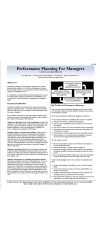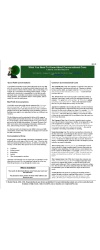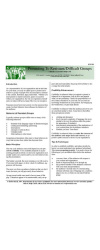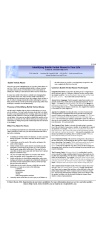Bad habits will interfere with your ability to listen and hear
It’s fair to say that in our society, we give lip service to the importance of listening to others but in practice we do not live in a society where people actually listen very well. There are many reasons for this, including inadequate effort allocated to teach people about listening and how to do it, and a tendency for many of us to be more interested in talking than in listening.
There are eight ineffective habits many of us, or perhaps all of us, have acquired that interfere with our listening. Becoming aware of them is a first step in becoming a better listener.
Early Dismissal of A Subject As Uninteresting
When we hear someone speak, we tend to evaluate whether or not what they are saying is of interest to us. When you make the judgment that something does not interest you, you stop listening, get caught up in your own thoughts, and shut down. While there’s nothing really wrong with that, if you do so too soon, you may end up prejudicing yourself and missing out on something that may, in fact be interesting, if only you would make the effort to listen and understand.
As a sidenote to this, interesting people tend to be open to finding value in a wide range of conversations and topics. Interesting people tend not to be bored, take the opportunity to learn from others, while boring people tend to find unfamiliar topics boring.
Avoiding Difficult Listening
Some people stop listening if the listening process requires attention, concentration and effort (which, by the way is often the case — listening isn’t easy). It’s a laziness habit. It’s also true that the more you indulge in the laziness habit, the more likely you are to become an even lazier listener. A simple antidote is to take time to pay attention to and listen to more demanding material. For example include listening to media news, commentary, etc in your regular routine to tone your listening muscles.
Criticizing Delivery or Physical Appearance
We should be listening to understand the other person. We can get pulled into thinking about HOW the person is speaking, or what they look like, rather than concentrating on what the person is saying, or the meanings they intend. While we are thinking about delivery or appearance, we no longer hear the meanings.
Faking Attention
We all do this, at least some of the time and probably more of the time than we even realize. We turn off mentally, but continue to want to appear like we’re paying attention. We nod, throw in an occasional superficial comment, and otherwise fake it. The problem here is that if you pay a little attention, and become a more active participant, you may find that you can steer a conversation to something you find you want to listen to. Asking a question or two (rather than faking) moves the conversation into dialogue and understanding, Faking doesn’t.
Part II of Eight Bad Habits That Get In The Way of Listening is here.






